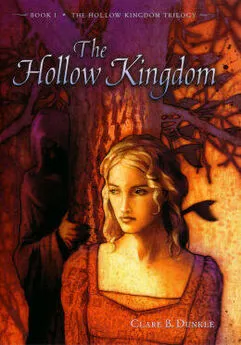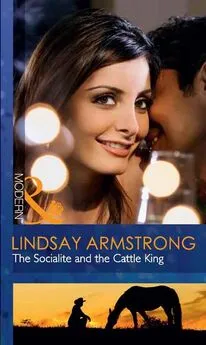Dewey Lambdin - The King
- Название:The King
- Автор:
- Жанр:
- Издательство:неизвестно
- Год:неизвестен
- ISBN:нет данных
- Рейтинг:
- Избранное:Добавить в избранное
-
Отзывы:
-
Ваша оценка:
Dewey Lambdin - The King краткое содержание
Fresh from war in the Americas, young navy veteran Alan Lewrie finds London pure pleasure. Then, at Plymouth he boards the trading ship Telesto, to find out why merchantmen are disappearing in the East Indies. Between the pungent shores of Calcutta and teaming Canton, Lewrie--reunited with his scoundrel father--discovers a young French captain, backed by an armada of Mindanaon pirates, on a plundering rampage. While treaties tie the navy's hands, a King's privateer is free to plunge into the fire and blood of a dirty little war on the high South China Sea.Ladies' man, officer, and rogue, Alan Lewrie is the ultimate man of adventure. In the worthy tradition of Hornblower, Aubrey, and Maturin, his exploits echo with the sounds of crowded ports and the crash of naval warfare.
The King - читать онлайн бесплатно полную версию (весь текст целиком)
Интервал:
Закладка:
"If I ever get back home, I'm going to become a farmer," he kept telling himself.
They smelled it before they could see it, even with a wind up their starboard quarter, in the last few hours of darkness before the sun burst above the horizon like an exploding howitzer shell. For a change, the winds were light, the seas calm and barely ruffled, barely heaving-more like lake sailing. Telesto gurgled and soughed instead of roaring and sloshing, her forefoot and cutwater under her bows parting almost still waters in a continuous, lazy surge.
"What the hell is that?" Lewrie wondered aloud, wiggling his nose like a beagle on a puzzling new trail. After six and a half months, barring the occasional port-call when they broke their passage at Oporto, Madeira and Table Bay at Capetown for hurriedly laden galley fuel, water and cargo, his olfactory senses had been brutalized by the stench of Ship. Tar and salt, fish-room, rancid cheeses and butter, salt-meats fermenting in brine, livestock in the manger, the odors of his fellow travelers below decks.
"Land, sir?" the middle watch quartermaster speculated from the huge double wheel, which now could be held and spun one-handed in the light airs.
Yes, there was a hint of coastline: rotting seaweed and the fishy aroma that most people called an ocean smell. But there was something else peeking from beneath that. A hint of cinnamon, pepper, coriander, almost like a Hungary Water that ladies dabbed on-perfume! First a tantalizing fantasy, then a real whiff.
"Flowers!" Alan yelped in glee. "Lots of green plants. And flowers! Ahoy, bow lookouts! See anything?"
"Nothin', sir!"
"Mister Hogue, leadsmen to the fore-chains. I think we're in soundings. Boy!" He directed the sleepy cabin servant-ship's boy on deck to turn the watch glasses on the half-hour bell. "Go aft and inform Captain Ayscough we're in soundings."
"Wake 'im oop, zir?" The boy yawned, stirred from his nap.
"Hell yes, wake him up. Witty, take a telescope and go aloft. It lacks two hours 'til sunrise, but you might be able to see something even so."
"A good morrow to you, Mister Lewrie," a voice called in the darkness. There was but a sliver of moon to see by, but Alan knew Ayscough's stern tones well by then. "Soundings, is it?"
"Smells hellish like it, sir. I've sent a man aloft with a glass, Mister Hogue, the master's mate, and hands to the forechains with the deep-sea leads. Last cast of the log showed just at five knots."
Ayscough came close by his side, clad in nightshirt and his watchcoat, his hair tousled by sleep. By the faint glow from the binnacle lanterns Alan could see him close his eyes and sniff deep.
"Patchouli," Ayscough muttered, smiling fondly. "Perfumed tresses. Perfumed mustaches. Cooking ghee. Jungle forests and a million flowers opening. Charcoal-burners, garbage-middens, sacred cow and elephant dung. Exotic attars and shite. India, at last!"
"Hun-drayed faa-thim!" a leadsman in the chains sang out slowly. "One hunn-drayd faa-thim t' this liine!"
"Six and a half months," Alan chuckled. "A damned fine voyage!"
"A dam' fast voyage, you mean," Ayscough commented, leaving his pleasant reverie. "T'only joy of it was passing those 'John Company' Indiamen like they were anchored fast in the Pool of London! Still, it had its moments. Proper navigation cut weeks off it. One thing I picked up from an evening with Jemmy Trevenen and Captain King of Resistance during the war."
"I met King once, sir, at Turk's Island."
"Did you indeed? Clever men. Most masters would stagger from landfall to landfall, you know," Ayscough mused. "Way over to here, double the distance of their passage, just 'cause that's the way they learned how to do so. But, with a reliable chronometer, the skills at plotting position, one may cut the odd corner now and then, taking the unknown shorter way. Most of 'em'd be satisfied if they could hug the coast. Like breaking across the Atlantic to the West Indies. Know that ninety percent of the ships still fall as far to the suth'rd as the latitude of Dominica, then cross due west to make their landfall? Just 'cause Dominica 's peaks are a sure seamark one cannot miss. When the Trades are the same south of Cape Verde, and one could scuttle across diagonally and save a week. A week, sir!"
"As we have, sir," Alan agreed, toadying a little.
"Hope you learned a little, then, Mister Lewrie. Something to consider on future commissions. Boy, go run and wake the master Mister Brainard," Ayscough directed. "Tell him, my compliments, and we're in soundings of the Hooghly Bar. Hundred fathom now, and I desire his expertise before the coast begins shoaling."
" 'Iss, zir," the boy replied, a trifle dubious he could remember all those "break-teeth" words in one sitting.
"Fiive an' ninety faa-thim!" a leadsman crowed loud as single rook on a foggy moor morning. "Fiive an' ninety faa-thim t' this line! Bott-tim o' grey mudd!"
"Grey mud, aye," Ayscough grunted in familiar pleasure. "Just what I'd expect. Hmm, five knot y'did say, Mister Lewrie? Pipe up to six by sunrise, if I'm any judge of these waters. Have the bosun pipe 'all-hands' at the change of watch. We'll take in t'gallants and feel our way in gently same time's we scrub decks. Coffee?"
"I'd admire some, yes sir."
"I'll send you a mug once my steward's brewed up a pot for me and Mister Brainard," Ayscough said as he was leaving. "Good thinking on the leadsmen and the overhead lookout, Mister Lewrie."
"Thankee, sir," Alan replied to the departing back. Ayscough was not lavish with his compliments. To earn even that slight, grudging notice was as much approval as most men would get from him in a full three years' commission. Indeed, a red-letter morning for him!
Low marshes. Swaying oceans of reeds straggling off to dryer ground. And heat. Harsh, crushing, damp heat worthy of a washerwoman's boiling, steaming tub of laundry water and the fire that stoked it, the sort of fire that could melt iron and forge artillery.
Once past the Hooghly Bar and into the river proper, Lewrie envied the hands aloft, up where the wind still rilled the sails. On deck, it was hot as the hinges of Hell, and the pounded tar between the deck planks softened and ran sluggish and shiny as treacle.
"My God!" he cursed, mopping his face with a sleeve. Under his cocked hat, his hair was plastered to his head with perspiration, and sweat glued his shirt and breeches to his body.
"Serge or broadcloth!" Brainard sniffed, taking a rest from dashing about the decks from one beam to another to take sights on distant spires or landmarks, from tasting and sniffing at what the waxed plumb of the sounding lines brought up. "You dress like you was paradin' on the Strand in all that heavy clothin', you'll be dead as mutton by sundown, mark my words, sir. Think you have to look like an officer all the time? Think the hands wouldn't recognize your phyz by now? Shuck or die."
"Gladly," Alan agreed, doffing his blue wool officer's coat and serge waist-coat. They collapsed in wet bundles on the baking deck where he threw them-almost left puddles, he imagined. He tore his neck-cloth loose as well. And almost shivered with relief as a puff of wind touched his skin.
"Once we're anchored, there's ten thousand good tailors ashore glad to run you up some lighter clothes. Duck or serge de Nimes. I prefer the lightest Madrassi cotton, meself. You and your man hire a darzee. Won't cost more'n a half a crown for him to run you up a coat. Waist-coat, too, if you really feel you need one. But I tell you I'd not wear one before sunset," Brainard cautioned.
Twigg and Wythy were on deck, taking their ease in canvas chairs atop the poop, screened from the sun by an awning below the boom of the spanker. The servant Ajit Roy was now bare from the knees down, clad in only a loose pair of pyjammy trousers, a sleeveless white cotton shirt that billowed free round his waist and his turban. He was trotting out fresh lemon-water, while another man they'd hired off a passing native boat, as flimsy an excuse for a craft as Alan had ever seen, worked the rope of a pankah to fan them and keep the flies off.
"We've made good progress, even so," Alan said, unbuttoning his shirt down to his navel to let the light winds play with him.
"Aye," Brainard sighed, wiping his own face. "Quarter-point to larboard on your helm, quartermaster. 'Less things have changed much, there's shoals yonder I'd admire we didn't strike. Ah, there! D'you see that lump of reddish rock yonder? Looks like a squashed anthill?"
"Aye, sir," Alan replied, raising a telescope. Just over the tops of the trees, he could barely make out something more substantial than the foetid coastal lowlands and marshes.
" Fort William. Be anchored by sunset, if the wind holds," the sailing master told him. "Pity the poor Frogs. Their Bengal trading factory is far up-river from ours. Chandernargore. Even worse a sail to get there. It's a wonder they kept it after the last war."
"Hello, here comes somebody," Lewrie said, pointing to a small ship that had appeared in mid-channel, shimmering like a mirage in the heat waves. "On her way down to the sea. What is she, sir? Venetian?"
"Ha, appears to be! Local built. Good God! Haven't seen a ship like that in a long time." Brainard laughed. "Most country ships out here are built outa good, hard teak wood. Lasts forever. Seen a well-cared-for ship last a century out here, whilst good English oak rots away in five years. She's like an old Venetian caravel, she is. Mighta been felucca or dhow-rigged once. See, below the crossed spars? How she carries fore'n'aft sails on lateeners? Good to windward this time of year. Probably started life as an oared galley God knows how long ago, and got rebuilt over the years."
"I don't recognize the flag, though, sir."
"Ah, hmm. House flag. Part Portugee, part Parsee. Sharp businessmen, they are. Sort of Arabs." Brainard sighed wistfully.
Old and shabby she might be, Alan thought, but she was definitely exotic. Exotic in the extreme, just like everything they had seen in the last two days on their slow passage up the Hooghly. There were people working in fields in turbans and dhotis. Oxdrawn carts with only one axle and squealing, un-greased wheels one could hear nearly a mile away, with loads piled prodigiously high swaying along slowly. Dak bungalows here and there, a day's slow bullock-cart travel apart.
Elephants bathing and splashing mud on their broad backs on the river bank, their mahouts watching for snakes and crocodiles. Women in sarees, long head-cloths or cotton shawls out pounding clothing on the banks. Occasionally around some larger town or village, there were men doing the same labor, the dhobees from a prosperous house.
A rare Buddhist priest in a saffron robe and his begging bowl. More often Hindu priests. A local rajah or rich trader with his procession of loaded gharies, his retinue of gaudily dressed mercenary soldiers on horseback. Curtained sedan chairs borne by sweating lower-caste men that might contain a babu, a fat native clerk, or a patchouli-scented courtesan. And once, to Burgess Chiswick's delight, a column of infantry on the march. Exotic, they were, too, to one used to the sight of an English regiment. Red coats, white pyjammy trousers, white cross-belts, sandals and kurtaa shirts. Brown Bess muskets held at shoulder arms, cocked hats with neck-cloths bouncing against their necks to keep off the fierce sun and not a stitch more of European clothing on their backs. But they were well-closed-up and marching to fifes and drums, their English officers riding stocky native horses with their bearers trotting alongside.
Читать дальшеИнтервал:
Закладка:



